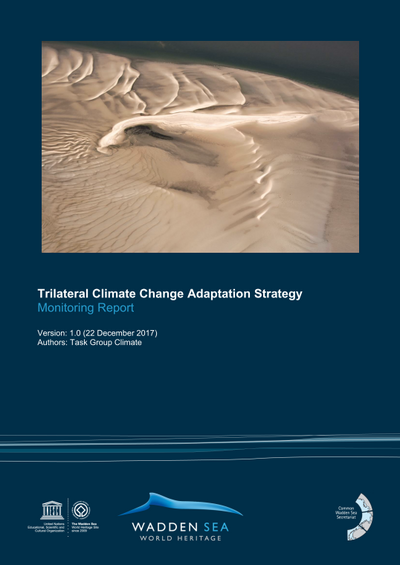Monitoring report measures seven principles in trilateral climate change adaptation efforts

Climate change and enhanced sea level rise threaten to seriously impact the structure, functions and characteristic biodiversity of the Wadden Sea ecosystem, as well as the safety of the inhabitants of the region. Addressing these impacts as a cross-cutting theme is a major challenge for the Trilateral Wadden Sea Cooperation.
A trilateral climate change adaptation strategy (CCAS) with seven principles was developed by the Wadden Sea Board´s Task Group Climate (TG-C). Two of the principles (Natural Dynamics, Interconnectivity) are strategic objectives for the Wadden Sea (eco)system. Five principles address and give guidance for climate change adaptation (Integration, Flexibility, Long-term approach, Site specific approach, Participation). In the recent “Trilateral Wadden Sea Climate Change Adaptation Strategy Monitoring Report for the Trilateral Cooperation of the Protection of the Wadden Sea”, TG-C evaluated the trilateral climate change adaptation strategy. The seven principles are being applied in a wide range of projects and policies in the trilateral Wadden Sea Area. The TG-C recommends to continue monitoring the trilateral CCAS and to embed the results in long-term trilateral climate change policies and, furthermore, to stimulate trilateral knowledge exchange on best practices for adapting to climate change.

